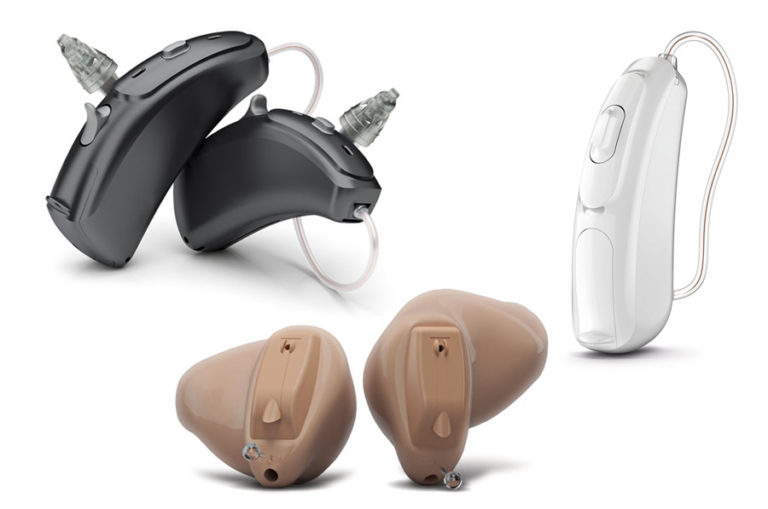Important Considerations When Purchasing Hearing Aids

The other day my husband, who works for a financial services firm in Chicago, was sharing with me a conversation he and his co-workers were having regarding investment options. His firm is always focused on how to differentiate what their financial advisors offer compared to other financial services available. The other services being the internet where you can DIY (do it yourself), with a discount provider, or with a credentialed financial advisor. As you can imagine you’ll get more sophisticated customized advice from a credentialed financial advisor then you will from the discount provider. When it comes to financial planning I cannot imagine how anyone would choose the DIY internet model unless they had a significant financial background. Yet, as I’m trying to wrap my head around that I realized it is the same thing that is occurring with hearing aid purchases.
When it comes to purchasing hearing aids people can either go to the internet, to a hearing aid dispenser, or to an audiologist. Much like with the financial choices your outcome will depend on this crucial decision.
The DIY Hearing Solution
The internet has an abundance of hearing aids for sale from discount sellers as well as individuals. Technically those sold on the internet are not actually classified as hearing aids but as sound amplifiers with limited volume, inadequate or no noise reducing abilities and few adjustments. The actual hearing aids for sale are being sold without proper programming so the consumer will still need to hire an audiologist for this. However, one of the biggest concerns regarding internet purchases is that you do not always know what you are getting. I have sadly witnessed a scenario where someone purchasing a hearing aid on the internet which later needed a repair. Once the aid was sent in the consumer learned that the aid they purchased had essentially been stolen. It was previous reported lost and replaced by the manufacturer. In this scenario the manufacturer rightfully confiscates the hearing aid and consumer is left to start over.
Dispenser vs. Audiologist
The main differences between a hearing aid dispenser and audiologist are education and the end goal. A hearing aid dispenser, while able to select and program a hearing aid to fit your ear has minimal training. In fact, some programs can be completed in as little as 12 weeks. Their main goal is to sell you a hearing aid.
A Doctor of Audiology (Au.D.), such as myself, has 7-8 years of education in every aspect of the ear from development of the auditory system, to diseases of the ear, to the prevention and treatment of hearing loss. When you see an audiologist they are looking at each client as a whole person rather than an opportunity to sell a hearing aid.
Variety is Key
Whether you are considering seeing a hearing aid dispenser or audiologist make sure they work with a variety of hearing aids from various manufacturers. A business that is only working with one manufacturer is not considering what is best for their patients. I work with a variety of manufacturers because I know that not one of them has the best hearing aid for every type of hearing loss. Some have better products for severe losses, some do better when it comes to Bluetooth connectivity, while others are leading the way in rechargeability. From years of experience have also learned the manufacturer with the best hearing aids this year may fall behind or struggle with their products next year. The only way to provide the best is to stay informed and up to date with a variety of companies and products.
Location, Location, Location
When considering the audiologist you would like to work with also consider where their office is located. Is it easy and convienent for you to get to? You should plan on seeing your audiologist on average 3 to 4 times in the first few months when getting a hearing aid. After that you will see them about twice a year or as needed for repairs, cleaning, and adjustments. What people do not realize is that once you adjust to wearing hearing aids you will not want to be without them. So, if your hearing aid were to stop working would it be easy for you to get to that office for a repair? Will you have to rely on others to get there? Do you have plans of moving in the near future that would impact getting to that office?
The Complete Package
There are a lot of decisions that need to be made when purchasing a hearing aid which can be overwhelming. When talking with my clients I will break it down into a series of small decisions and guide them in their decisions based on their hearing results, their hearing needs, and any concerns they have. For example, deciding on the style of hearing aid may seem simple but to make this decision I need to consider my client’s hearing loss, ear shape, as well as the mobility in their arms, shoulders, and hands. That decision made we move on to discuss technology, rechargeability, manual controls, Bluetooth compatibility, service packages and so on.
Navigating the world of hearing loss and hearing aids can seem overwhelming which is why working with an audiologist is so valuable. Of all the considerations, the professional you select is the most important. Your hearing health is like your investments; you would not invest money with someone you did not feel was competent and knowledgeable nor should you trust your hearing health to just anyone.